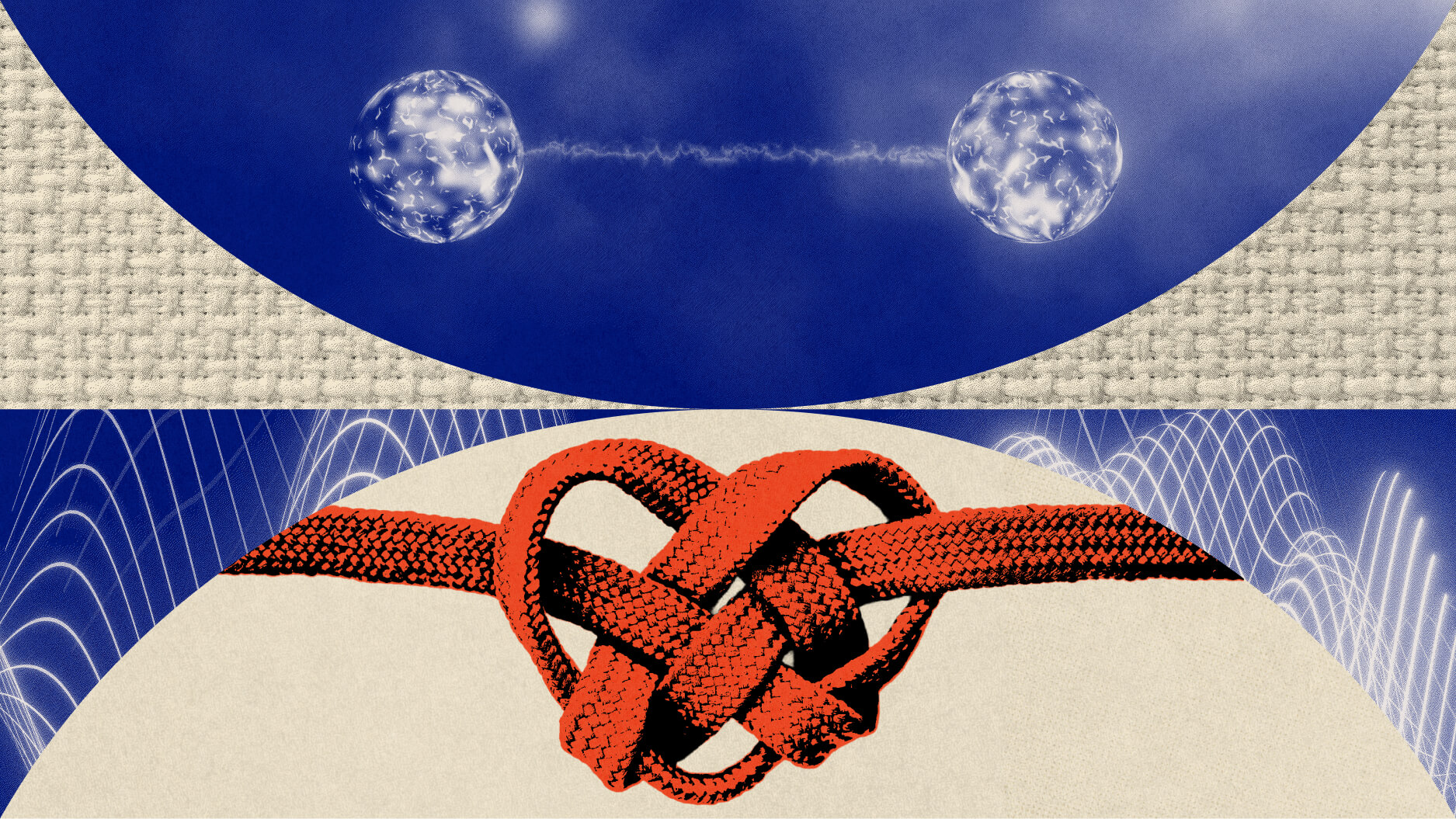Jere Van Dyk is a journalist and author who has focused much of his writing on Afghanistan and Pakistan. In the early 1980s, working as a correspondent for The New[…]
Sign up for Big Think on Substack
The most surprising and impactful new stories delivered to your inbox every week, for free.
Using connections he’d made living with the Mujahideen in the 1980s, Van Dyk set out to discover the relationship between the Taliban and Al Qaeda, but ambition and deadlines pushed him to take risks he shouldn’t have taken.
Question: What were you hoping to accomplish in the tribal areas of Afghanistan?
rn
rnJere Van Dyk: What I was doing was that trying on my contacts and rnexperiences in Afghanistan and in Pakistan in the 1980's. I was trying rnto reach Taliban leaders. In the 1980's, I went through the tribal rnareas, hiked up into Afghanistan, lived in the mountains of Afghanistan rnand down in the deserts of Kandahar with the Mujahadeen—then America's rnclose allies against the war, fighting the Soviet Union. I was a rnnewspaper reporter for The New York Times, and my—over a period of time Irn got to know what we call Pashtun Walli, which would be called the rntribal code of the Pashtuns—Pashtun being the principal ethnic group in rnAfghanistan and across the border in Pakistan. The Taliban are rnPashtuns.
Because I knew these men from before, when the United rnStates invaded Afghanistan in October of 2001, a great many of the rnformer Mujahadeen went to work with the United States and NATO. They rnjoined the West; they became part of the government; they had rnbusinesses. Other men I knew from the 1980's went up into the mountainsrn and began to lead the fight against the U.S. I knew this network from rnhaving been there in the 1980s, having worked with them for over a rnperiod a time. I had written a book about them; I understood to a rndegree the tribal culture, the role of Islam, and where Islam and tribalrn culture worked, where tribal laws took precedence, and where Islam tookrn precedence. I had an understanding of the language. I knew how to rndress, how to act, how to walk, how to look at a man in a way, how to rneat, how to wash my hands, how to pass—almost, but not entirely—as a rnPashtun.
So, what I was doing was trying on my contacts, heading rnout with these bodyguards and this interpreter. And this took months torn arrange. I'd already been with the Taliban four times. I'd already rncrossed into the tribal areas four times, but this was a trip to go deeprn into the tribal areas to perhaps get to the Taliban leaders, and rnthrough them to Al Qaeda. To find out who the Taliban really were, who rnwas behind the Taliban, and to what degree they are tied to Al Qaeda, rnand where the Al Qaeda leadership is located. That was my goal. That rnwas what I was trying to do.
rnQuestion: Would you have done things differently if given another chance?
rn
Jere Van Dyk: There's an old – it comes from Kipling, rnand he heard it... it came long before him: "Here lies a fool who triedrn to hustle the East." What I was doing for months when I was traveling rnalong the border off and on and going with the Taliban... in all the rnwork that I was doing I took my time. I didn't push it. I operated by rnPashtun rules, Pashtun time. I lived according to their ways as much asrn I could. I fasted during Ramadan, I would eat in the same way, I wouldrn take my time... everything I did was in the way of the Pashtun's as I rnremembered it from the 1980s.
However, I became so driven with rnambition, blind to what was going on around me, wasn't fully aware of rnsome of the intrigue that was circling all around me. I knew about rnbetrayal. I'd already been betrayed once by one Taliban group. I had rnletters threatening my life. I knew that others were after me. I was rnliving in a very dark, paranoid world completely separate from the rnWest. I didn't register at the U.S. embassy. I knew I had to avoid allrn journalists, all Afghan, Pakistani, and U.S., and NATO military rninstitutions and intelligence agencies. So living in this very dark rnworld trying to move as an Afghan.
But my deadline for the book rnwas approaching. I was running out of money because I had to pay men uprn and down the border in order to put all these projects together. I wasrn running so many different men that I became anxious, desperate. "I rnhave to move." And when I got a call from one of my main sources, one rnof my main contacts, a former Mujahadeen leader, today a prominent rnmember of Parliament, who had arranged for me to go and meet with this rnprominent Taliban leader. When he told me not to go because I was rndesperate and had to move, I ignored him—a decision that changed my rnlife.
Recorded June 29. 2010
Interviewed by Max Miller
rn
rnJere Van Dyk: What I was doing was that trying on my contacts and rnexperiences in Afghanistan and in Pakistan in the 1980's. I was trying rnto reach Taliban leaders. In the 1980's, I went through the tribal rnareas, hiked up into Afghanistan, lived in the mountains of Afghanistan rnand down in the deserts of Kandahar with the Mujahadeen—then America's rnclose allies against the war, fighting the Soviet Union. I was a rnnewspaper reporter for The New York Times, and my—over a period of time Irn got to know what we call Pashtun Walli, which would be called the rntribal code of the Pashtuns—Pashtun being the principal ethnic group in rnAfghanistan and across the border in Pakistan. The Taliban are rnPashtuns.
Because I knew these men from before, when the United rnStates invaded Afghanistan in October of 2001, a great many of the rnformer Mujahadeen went to work with the United States and NATO. They rnjoined the West; they became part of the government; they had rnbusinesses. Other men I knew from the 1980's went up into the mountainsrn and began to lead the fight against the U.S. I knew this network from rnhaving been there in the 1980s, having worked with them for over a rnperiod a time. I had written a book about them; I understood to a rndegree the tribal culture, the role of Islam, and where Islam and tribalrn culture worked, where tribal laws took precedence, and where Islam tookrn precedence. I had an understanding of the language. I knew how to rndress, how to act, how to walk, how to look at a man in a way, how to rneat, how to wash my hands, how to pass—almost, but not entirely—as a rnPashtun.
So, what I was doing was trying on my contacts, heading rnout with these bodyguards and this interpreter. And this took months torn arrange. I'd already been with the Taliban four times. I'd already rncrossed into the tribal areas four times, but this was a trip to go deeprn into the tribal areas to perhaps get to the Taliban leaders, and rnthrough them to Al Qaeda. To find out who the Taliban really were, who rnwas behind the Taliban, and to what degree they are tied to Al Qaeda, rnand where the Al Qaeda leadership is located. That was my goal. That rnwas what I was trying to do.
rnQuestion: Would you have done things differently if given another chance?
rn
Jere Van Dyk: There's an old – it comes from Kipling, rnand he heard it... it came long before him: "Here lies a fool who triedrn to hustle the East." What I was doing for months when I was traveling rnalong the border off and on and going with the Taliban... in all the rnwork that I was doing I took my time. I didn't push it. I operated by rnPashtun rules, Pashtun time. I lived according to their ways as much asrn I could. I fasted during Ramadan, I would eat in the same way, I wouldrn take my time... everything I did was in the way of the Pashtun's as I rnremembered it from the 1980s.
However, I became so driven with rnambition, blind to what was going on around me, wasn't fully aware of rnsome of the intrigue that was circling all around me. I knew about rnbetrayal. I'd already been betrayed once by one Taliban group. I had rnletters threatening my life. I knew that others were after me. I was rnliving in a very dark, paranoid world completely separate from the rnWest. I didn't register at the U.S. embassy. I knew I had to avoid allrn journalists, all Afghan, Pakistani, and U.S., and NATO military rninstitutions and intelligence agencies. So living in this very dark rnworld trying to move as an Afghan.
But my deadline for the book rnwas approaching. I was running out of money because I had to pay men uprn and down the border in order to put all these projects together. I wasrn running so many different men that I became anxious, desperate. "I rnhave to move." And when I got a call from one of my main sources, one rnof my main contacts, a former Mujahadeen leader, today a prominent rnmember of Parliament, who had arranged for me to go and meet with this rnprominent Taliban leader. When he told me not to go because I was rndesperate and had to move, I ignored him—a decision that changed my rnlife.
Recorded June 29. 2010
Interviewed by Max Miller
▸
16 min
—
with





